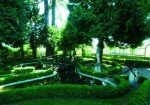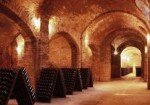 A popular tradition of the Langhe, Monferrato and Roero narrated by our preferred traveler Manuela Vullo.
A popular tradition of the Langhe, Monferrato and Roero narrated by our preferred traveler Manuela Vullo.
 The ritual farmer calendar, deeply tied to the rhythms of the seasons, had an important summer appointment: the Summer Solstice, the 21 June, rituals of archaic source that Christian culture has made to coincide with the feast of San Giovanni Battista, the 24 June. The rituals connected with the summer solstice have a ancient pagan origin: on the night of the summer solstice the Sun (fire) that stops in its highest point fits with the Moon (water): from here the ritual of the campfire, widespread across Europe and also in the peasant culture of the hills of Langhe and the Roero. From this very impressive tradition, that "Cesare Pavese" He had witnessed as a child during his summers in Santo Stefano Belbo, the title of the novel by Cesare Pavese, "La Luna e i falò".
The ritual farmer calendar, deeply tied to the rhythms of the seasons, had an important summer appointment: the Summer Solstice, the 21 June, rituals of archaic source that Christian culture has made to coincide with the feast of San Giovanni Battista, the 24 June. The rituals connected with the summer solstice have a ancient pagan origin: on the night of the summer solstice the Sun (fire) that stops in its highest point fits with the Moon (water): from here the ritual of the campfire, widespread across Europe and also in the peasant culture of the hills of Langhe and the Roero. From this very impressive tradition, that "Cesare Pavese" He had witnessed as a child during his summers in Santo Stefano Belbo, the title of the novel by Cesare Pavese, "La Luna e i falò".
It was the common belief that the power of the Moon (water) along with the magical bonfires (fire) on the night of San Giovanni had the power to awaken the campaigns. Bonfires are a tribute to the Sun, the unstoppable March of nature that tries to make the lighting of benevolent bonfire, representing a propitiatory rite for the harvest season. A fire that purifies the fields, that brings the harvest.
La notte di San Giovanni, a night that according to legend was linked to the activities of the witches (and they gathered many herbs, like St. John's wort, for maximum benefit of their healing properties) the hills were dotted with shimmering bonfires. In many bonfires are built a snowman rags and faggots, that symbolized a kind of daemon from defeat with fire. In this mixture of popular superstitions and religion, It was a strong suggestion of a fire burning and illuminates the night, the fire that warms the hearts and makes the community unit.
"La luna e i falò" is a novel full of references to the cycle of the seasons, with the Moon that marks the themes of agricultural work.
Explains Nuto, Zip code. IX: “The Moon, [...] We believe by force. [...] Try full moon cut a pine, I'll eat the worms. A tina you wash when the Moon is young. Even the grafts, If you don't make it to the early days of the Moon, do not attack.”




 Santo Stefano Belbo
Santo Stefano Belbo 

 Do you want to highlight your event or business?
Do you want to highlight your event or business? Alessandra Scotti Web Design Art Director, graphicsdesign, webdesigner
Alessandra Scotti Web Design Art Director, graphicsdesign, webdesigner B&B La Rana e La Salamandra House for rent and Bed & Breakfast in Loazzolo
B&B La Rana e La Salamandra House for rent and Bed & Breakfast in Loazzolo Educational Farm ArteMiele Genuine products and educational workshops to discover bees and silkworms
Educational Farm ArteMiele Genuine products and educational workshops to discover bees and silkworms